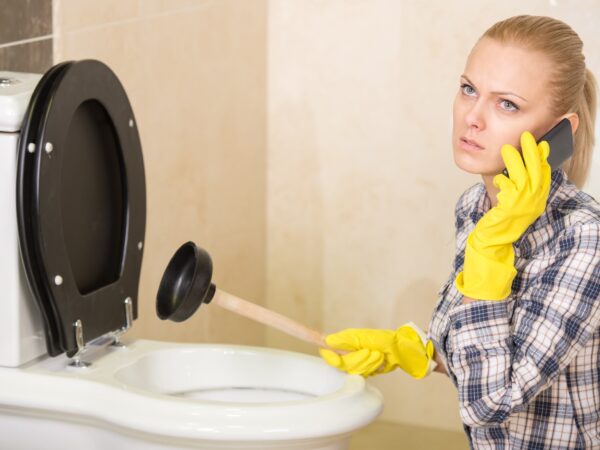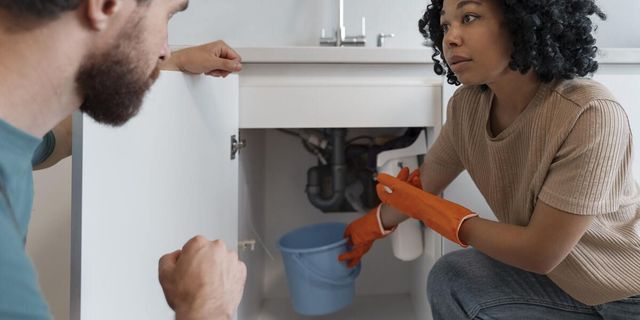Immediate Pipe Repair Advice for Urgent Issues Until Assistance Arrives
Immediate Pipe Repair Advice for Urgent Issues Until Assistance Arrives
Blog Article
What are your beliefs on Expert Tips for Emergency Plumbing Repairs?

Pipes emergency situations can strike at any moment, triggering anxiety and prospective damages to your home. Whether it's a burst pipe, a blocked drain, or a leaky tap, recognizing just how to handle the situation until a professional plumber gets here can conserve you from more issues. This post offers important emergency plumbing pointers to aid you alleviate damage and restore control during a pipes situation.
Shut off the Supply Of Water
The initial step in any pipes emergency situation is to turn off the supply of water. For localized concerns, such as a dripping faucet or toilet, switch off the shutoff near the fixture. In the case of a significant leakage or burst pipeline, find your home's primary water shut-off valve and transform it off right away. Knowing the area of these valves beforehand can conserve useful time during an emergency situation.
Shut Off Your Hot Water Heater
In specific emergencies, such as a ruptured pipeline, it's a good idea to shut down your hot water heater. This avoids getting too hot or damage to the unit when water quits streaming. Turn off the power supply to the hot water heater (electric or gas) and allow it cool off to avoid prospective risks.
Momentarily Stop a Ruptured Pipeline
A burst pipeline can lead to substantial water damage in minutes. To minimize the problem:
Call an expert plumbing professional right away to resolve the problem completely.
Have an Emergency Pipes Package
Prepare a fundamental pipes emergency set to handle minor concerns effectively. Your set needs to include:
Having these tools available can make a substantial difference in your capability to take care of emergencies.
Unclog Drains Securely.
A clogged up drain can be a discouraging and unpleasant issue. Right here's exactly how to tackle it:.
If these approaches don't work, avoid utilizing extreme pressure, as it might get worse the clog.
Take Care Of Overflowing Toilets.
An overflowing commode can cause immediate chaos. Here's what you ought to do:.
Address Tiny Leakages with Short-lived Repairs.
Little leaks can rapidly become significant problems if left uncontrolled. Make use of these momentary repairs up until professional help gets here:.
While these repairs aren't permanent, they can aid lessen water loss and damage.
Handle Frozen Piping Very Carefully.
In chillier climates, icy pipes are a common emergency situation. If you presume a frozen pipeline:.
Know When to Call a Specialist.
While quick fixes can assist momentarily, specific plumbing problems require instant professional focus. Call a plumbing technician if:.
Promptly calling a professional makes sure the concern is fixed appropriately and avoids more problems.
Stop More Damage.
Taking fast activity to reduce damages can conserve you time and money in the future. Here's just how:.
Conclusion.
Plumbing emergency situations can be frustrating, yet with the best understanding and devices, you can take care of the situation efficiently up until assistance gets here. By switching off the water supply, dealing with little leakages, and making use of temporary fixes, you can reduce damages and maintain your home safe. Bear in mind, these tips are temporary services; always seek advice from a qualified plumber to handle the root cause of the problem. Preparation and quick thinking are your finest allies in any type of pipes emergency situation.
8 Helpful Tips for Managing Plumbing Emergencies at Home
If your plumbing system hasn’t failed once, wait for it because almost everyone has a story to tell. Sometimes, it could be simple emergencies such as a leaking pipe, a blocked cistern, or even a big burst pipe. In situations like this, you need to have some handy tips to save you some money and from possible damages.
Take care of minor issues early.
Sometimes, you could have avoided an emergency by taking proactive measures while it was still early. Some major plumbing emergencies can be a result of an ignored minor issue. We recommend that you have items like plumbing tapes and other related items. A plumbing tape can allow you to manage minor leaks before the plumber arrives.
Cut off the water supply.
This tip is essential in almost any type of leakage problem. For problems like minor leakages in the toilet or kitchen, turn off the supply that takes water to the affected pipes. If the leakage is a major pipe, you must shut off the supply valve to the entire building. This will help you avoid flooding your home and neighbors if you share a flat.
Know your plumbing system
Folks typically move into a new apartment without understanding the water supply around the building. This can prove disastrous if a water emergency arises and the plumber is far away. The previous tip will prove useless if you don’t practice this one. More importantly, know where your water shut-off valve is located – you’ll need that knowledge to prevent potential home floods.
Have some common handy tools
There are lots of plumbing emergencies that you can handle without hiring a plumber. That’s why you must keep some tools available always. Some tools that you can use to fix simple plumbing emergencies easily include plumbing tapes, screwdrivers, thread seal tapes, plungers, pliers, tape measures, and rubber gloves.
Insulate your pipes from cold
You’ll save yourself from many plumbing expenses if you protect your water pipes from the cold. This is because of the harmful effects that cold weather can have on your pipes. During winter, your pipes can burst from being overly expected to freezing temperatures. So, make sure insulators are there to keep the pipes working correctly.
Avoid practices that will clog your toilet.
Many people indulge in practices that can damage the plumbing system of the entire building. One of these is when they use their toilet to dispose-off garbage. They flush all kinds of things, such as paper towels, bandages, hairs, female sanitary products, etc., down the toilet. This will block your toilet in the long run, incurring unnecessary expenditures. Dump such waste in the trash instead.
Check your dials regularly.
Sometimes, there could be leakages in your home without noticing them in time. So, constantly monitor your water meter dial. If the dial is reading when there is nobody using water, this is an indicator that there is leaking. Check for leaks immediately. Call a plumber as soon as possible if you can’t find any.
https://www.constructionplacements.com/8-helpful-tips-for-managing-plumbing-emergencies-at-home/

I was made aware of that article on What to Do While Waiting for an Emergency Plumber through a friend on our other web property. Loved our post? Please quickly share it. Help other people find it. Thank you for your time spent reading it.
Website Report this page